I’ve read literally thousands of books. There are very few I would say changed my life or so impacted my thinking that I regularly think about their content or pick them up over and over again. Emotional Phases of a Woman’s Life by Jean Lush [Revell, 1987] is one such book.
The book was so important to me that when David and I were engaged I told him of everything he could read to prepare for marriage to me, Chapter 2 was in my opinion more important than anything else.
The book is divided into four parts:
- Entering Womanhood
- The Romantic Phase
- Mid-Life Malaise
- The Menopause
What makes this book different is that if focuses on the emotional aspects of being a woman and how those emotions are related to hormonal changes related to the monthly cycle. I think the book is especially helpful for women who struggle with painful cycles, strong hormonal fluctuations, drivenness/perfectionism, and/or are highly productive in their approach to life.
Chapter 2 is “The Emotional Side of Menses.” It is so good that I actually wrote the publisher and asked if I could post the entire chapter on my site since the book is out of print. They said no which is unfortunate, but there are about 140 used copies on Amazon right now so the book is very accessible and inexpensive even though it is out of print.
In Chapter 2 Lush goes through a typical month with a fictional 27-year-old woman named Jane. She tells the story of Jane’s life through a monthly cycle, interspersing an explanation of what is happening hormonally in Jane’s body and how Jane is perceiving her husband, children, activities, home, and life in general. Because it is told in a narrative fashion, I found it extremely compelling. She describes the various times as surging tide, high tide, fertile sea, ebb tide, outgoing tide, and low tide.
When I read it the first time it was like the proverbial light bulb went on in my head. I was probably in my mid-20’s and had struggled to deal with and understand my debilitating cycles, changing energy levels, motivation, etc. over the years. I never really understood what a profound impact hormonal changes had on my life, how I viewed myself, and how I viewed literally everything around me.
In Chapter 2 Lush also gives a list of possible emotional responses for each week. She divides it into five parts:
- First Week: Rising estrogen levels
- Second Week: Estrogen levels off and declines slightly
- Ovulation: Estrogen rising again, progesterone rising
- Third Week: Rising estrogen and overriding progesterone
- Fourth Week: Premenstrual–estrogen and progesterone levels fall
Under each heading she gives a list of fifteen to twenty different emotional responses women are prone to have during that phase. Reading through those lists made everything make so much more sense!
Understanding what to expect from your body each week and how you are prone to respond to it emotionally can be a key way to be a good steward of your life as a Christian. While we might not always be able to plan around our cycle phases, utilizing this information and scheduling based on how we anticipate feeling during a certain week makes a great deal of sense. Some weeks are better for painting the kitchen than others. Some weeks are definitely the wrong time to go on an all day back-to-school shopping marathon with three children.
There is nothing wrong with understanding your physical limitations, accepting them, and working your life around them.
If there is anything I would want women to take away from the book, it is that idea. God designed us this way and He has allowed us to understand this. Wisdom dictates that we utilize that knowledge in the best way possible to be the best possible steward of our bodies, our gifts, and our relationships. I found the book incredibly freeing in that it let me off the proverbial hook of feeling compelled to push myself even when I wasn’t physically up to the task. It wasn’t me being lazy or unmotivated. It was the way God created me.
So that is just a peek into the book. There is much more there that covers all of the different phases of a woman’s life. Lush offers suggestions as to how to effectively deal with different issues that crop up. The book is twenty-three years old so there are probably some old statistics in it, but that doesn’t change the important message of understanding your body and emotions.
I highly recommend this book and will certainly discuss it with Caroline when she is old enough. Most girls starting their cycles probably won’t fully “get” Chapter 2, but laying the groundwork would still be helpful. And then discussing it again when the young woman is mature enough to really understand and apply the concepts.
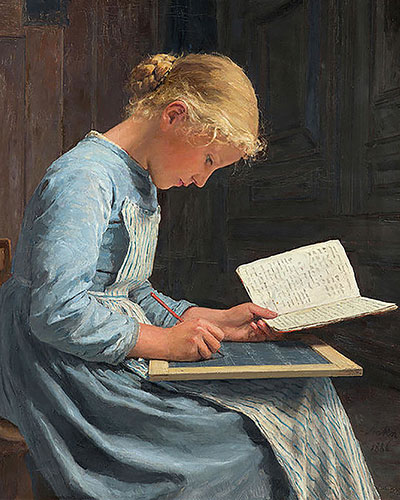

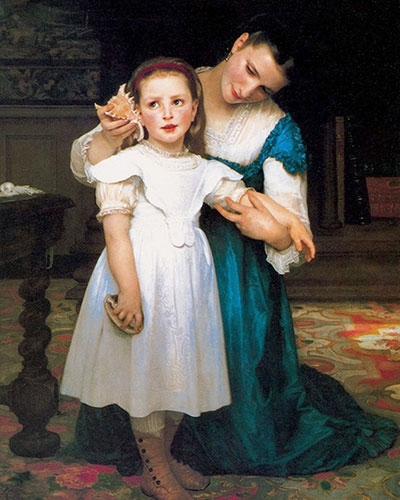
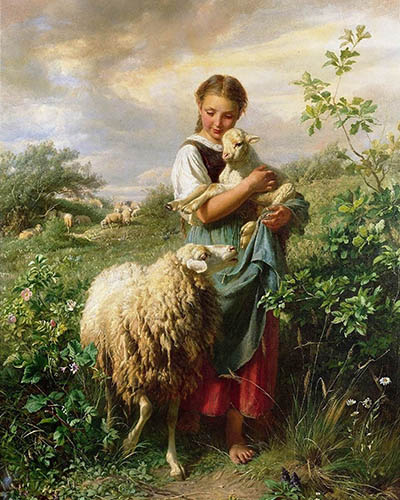
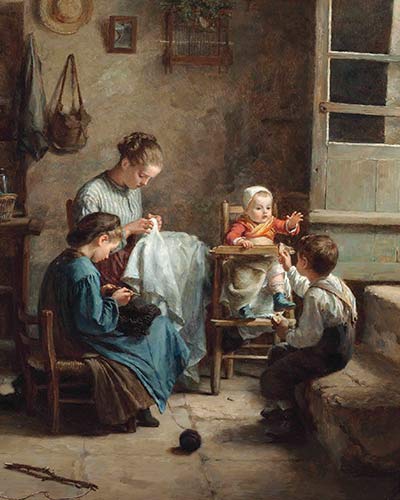
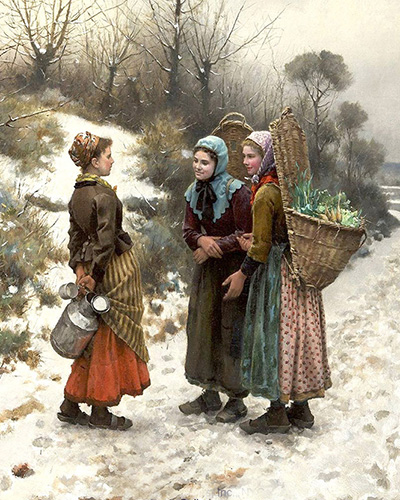
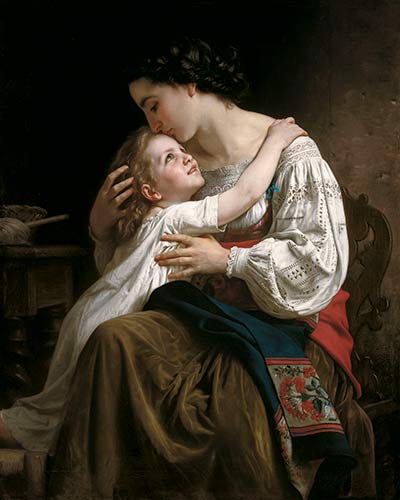
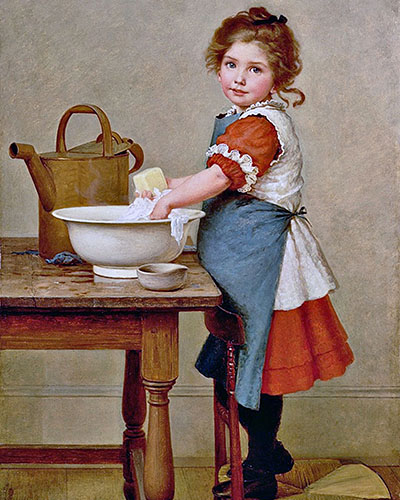

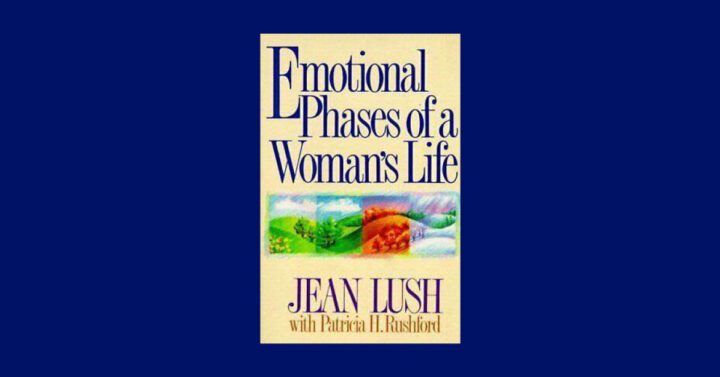






 How A Homeschooled Dreamer Does Preschool Math
How A Homeschooled Dreamer Does Preschool Math
I remember skimming this book in my twenties, and not thinking much of it. It seemed so negative compared to Ingrid Trobisch’s The Joy of Being a Woman, which I was also reading then, and which also deals with the interrelated physical and emotional aspects of womanhood. That was the book that I would say changed my life/impacted my thinking a great deal. It would be interesting to read the Emotional Phases book now, to see if I could get more out of it.
Peggy,
That’s interesting that you found it negative. I haven’t read the other book you mentioned. I just flipped through the Lush book again to see why it might come across as negative.
I think it goes back to what I wrote about who would benefit the most from it. I think women who struggle with their cycles being very negative will relate to much of what is in here. While I realize that God made us to have cycles and they are a great part of being a woman for what they potentially represent, for women who have experienced debilitating cycles for years it is hard to see them as a positive. If the whole hormonal thing completely disrupts your life, it is a real challenge to know how to respond to it all. I also think my previous comment about perfectionist and highly productive women is true. Women who are naturally wired that way I think are prone to more struggles and depression regarding their cycles because they are so disruptive to their natural way of life and thinking.
I hope that makes sense!
I looked at the book you mentioned on Amazon and it sounds like that book is much more about women, emotions and how men should relate to them. If that is the case, it has a different slant than this one, I think.
Yes, The Joy of Being a Woman has a lot to help husbands understand their wives better, but I think the main theme is really one of coming to accept and love your physical self as God created it; this is more challenging for women, who undergo several major physical transitions in a lifetime. The book focuses mostly on these transitions.
The main negative impressions I got from Emotional Phases of a Woman’s Life were, I think, that the author seemed to be saying that my romantic illusions of youth would soon pass, grim reality would set in, and my hormonal issues would only get worse as I got older. But it was a very long time ago that I read it, and I only skimmed it quickly.
Thanks for your review. I’d like to read this book someday!
I also like another book by Jean Lush called Mothers and Sons. In fact, your review made me want to go pull that book off the shelf since I haven’t looked at it in several years.